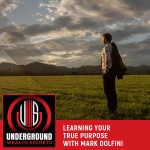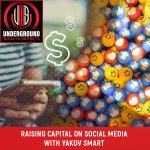Aspiring For More With Frank McKinney
- Post author By rldiamond
- Post date December 9, 2022
- No Comments on Aspiring For More With Frank McKinney
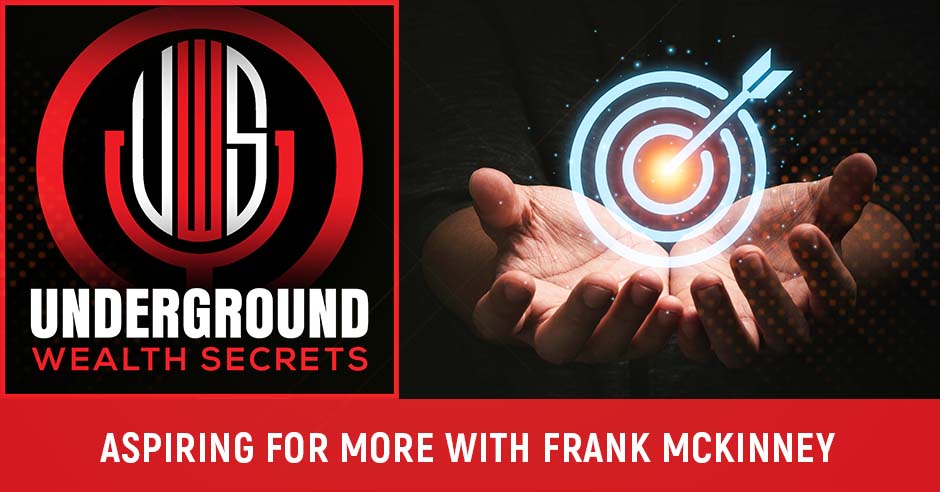
Stop trying to stay motivated to the point that you beat yourself up for it. Instead, look on the horizon and start aspiring for more. Identify what you truly want to be and what legacy you want to leave behind to the younger generation. Once you fully understand that, you’ll know what to do with your life. Take risks, stop living with regret, and take control of your life by becoming clear with your bigger purpose.
Join Julie Houston as she talks to a true modern-day Renaissance man, Frank McKinney about his new book, Aspire! Listen to his story of failing to find happiness despite having so much money at 21. Frank details his journey of discovering what he really aspires to be: an author who inspires and helps the homeless get back on their feet. He shares how he started the Caring House Project Foundation and how their self-sustaining houses support the poor across the country.
—
Watch the episode here
Listen to the podcast here
Aspiring For More With Frank McKinney
I am very excited. We have an incredible guest. I cannot wait to introduce you. He has an incredible background. He’s a seven-time bestselling author Frank McKinney. Frank, welcome to the show. It’s such an honor to have you.
This introduction, Julie, “He has an incredible background.” What is my background? Look right there. There’s my incredible background. SpongeBob pillow.
I like how I indirectly threw that in there.
Full disclosure. I worked out of a tree house for 25 years. We sold our house, sadly, after 25 years. I raised our daughter there. You can imagine where the SpongeBob pillow came from, to remind me of her and my treehouse. I did not set that up purposely for the camera to catch it. That’s on our couch. Anyway, we’re going to leave him up.
Frank, do you mind giving a little bit about your background, your professional background, and what led you to where you’re at now?
Real quick, where I am now, then I’ll go backward. I’m a seven-time bestselling author in six different genres. My new book, Aspire! How to Create Your Own Reality and Alter Your DNA, came out. It’s my sixth genre. I build oceanfront homes on speculation, meaning I build these beautiful mansions on a sun-drenched canvas known as the Atlantic Ocean. As with Van Gogh, Renoir or Monet, I’m an artist, only I build three-dimensional art that people can live in. They buy from us.
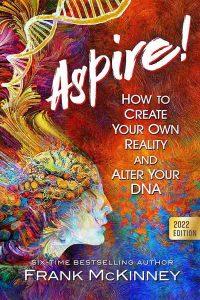
I don’t have a buyer in mind when I build these. I build them completely on spec. I design them and furnish them down to the gold-plated toothbrush in the bathroom, linens on the beds, and towels in the closet. Hopefully, somebody comes along and buys them. We’ve done 44 of these projects over the last several years with an average selling price of around $14 million.
I run a fairly large nonprofit. I don’t like to name charity because charity exacerbates poverty. We run an organization in Haiti called the Caring House Project Foundation. It had built 30 self-sustaining villages in the poorest country in the Western hemisphere, caring for over 13,000 children who were eating dirt flavor with bullion and lemon juice before we got there. Now they’re living in self-sustaining existence.
I’m an ultramarathon runner, meaning that’s my hobby. I run races in excess of 100 miles. That’s now. Before, I’m a corn-fed country boy from Indiana. I was born on a farm, the oldest of six, and went to 4 high schools in 4 years, not because my dad was in the military. It’s because I was asked to leave one school after the next, finally graduating with a 1.8 GPA. Another turnstile revolving door, I had left juvenile detention for the 7th time before I was 18.
I realized I needed a change of venue. I turned around and grabbed the eraser of life and turned around to the chalkboard of life and erased what was. I got on a plane with a $50 bill and a one-way plane ticket from Indiana to Florida when I was eighteen. No further education. Now I’m sitting in a little apartment with SpongeBob on my shoulder having a fun time with you.
I got to say, through your career, I’m sure you’ve had a lot of ups and downs. What has kept you motivated and your inspiration so driven?
My new book, Aspire. This is a direct answer to your question. You asked me what keeps me motivated. Motivation washes off and goes down the drain with the soap at night. We, as human beings, as a species, were not meant, are not wired to be or stay motivated. That’s why there’s a billion-dollar industry out there built around motivation. “What keeps you inspired, Frank?” You said that. Inspiration lasts about as long as a bad sunburn. In other words, after a week or so, it dissipates and we’re back to where we were.
Motivation washes off and goes down the drain with your soap at night. Humans aren't wired to stay motivated. Click To TweetQuit beating yourself up over the fact that you can’t stay inspired or motivated, which I can’t. Neither can you. It’s an aspiration. Aspiration is what altered my DNA and allowed me to create my own reality. When I left Indiana, I killed the person I was born to be to become the person I wanted to be. If you are who you were born to be and you like it, great. You don’t need to kill that person off. Seven times in juvenile detention, I was causing my beautiful mother to turn prematurely gray. I wanted to alter my DNA.
That process of aspiration, not motivation or inspiration, I’ve aspired to five things in my life. As you’re reading this, stop trying so hard to stay motivated and beat yourself up over the fact that you can’t stay on a diet or a fiscal or financial plan. Go to church every Sunday. You name it, you can’t do it. Once I identified what my life’s aspirations were, let’s use being an author as an example. 1.8 GPA out of high school, no formal education. It would’ve been a lower GPA, but I had an A in creative writing.
I aspired to be a bestselling author. I might lose motivation. I might lose inspiration to be that best-selling author, but that aspiration is like a Fabergé egg. It is a jewel box that I set up on a shelf. It’s sacred. I don’t lose sight of the fact of that aspiration someday is going to come true. The first section of my book talks about the difference between motivation, inspiration, and aspiration. It also challenges you. There are 25 chapters of my new book. There’s only one in the form of a question. What legacy do you aspire to leave behind?
That legacy is going to be tied to your aspirations. As you identify them, mine, one of them being a bestselling author, your aspirations can never be taken away from you. No matter if I write another book or not, I became a bestselling author. Ask yourself that question. What legacy do I aspire to leave behind? How is that tied to my aspirations in life?
Be certain of what kind of legacy you aspire to leave behind and how it ties to your aspirations. Click To TweetIt makes sense when you break it down like that. I never broke it down like that. I got to ask, though, through this and the inspiration in writing this book and your entrepreneurial experience, did fear play a role in that? For the typical everyday person like myself, maybe writing a book seems impossible. For example, I’d be scared. Does fear impact any of these?
Let me start by answering your direct quote. I’m afraid every day of my life. I build on speculation, meaning building a house without a buyer. I’m not a custom builder. I’m a spec builder. It was a $50 million house, no buyer. Am I going to be eating at Ruth Chris Steakhouse tonight or out of a dumpster? That’s how I’ve lived for many years. Coming to Florida, I had no network, no education, no money, no friends, and no connections. I had a tremendous amount of fear, but I never let fear stop me. I know now, as I’m an enlightened older individual, that when I’m feeling fear, that fear is almost always associated with the thought of taking a risk, not with the actual taking of the risk.
One more time. When you think about taking a risk, be it financial, spiritual, relational, dietary, physical, or whatever, it’s the thought of taking that risk. That risk is usually associated with a big change or a big challenge in your life. The next thing to sit in instantaneously is fear. Most of us stop dead in our tracks because of the sensation of fear associated with the thought of taking a risk.
“That’s philosophical. Frank. I get it,” but let me make it simpler. You get on a rollercoaster. Almost everybody’s ridden on a rollercoaster. That metal bar comes down across your waist and you start going up that first hill by way of the little gear. Your hands are sweating. You’re afraid that your heart is going to pop out of your chest at the thought of what is about to happen. Nothing’s happened. You’re safe, you’re in your seat, and you are secure.
It’s the same thing in business, in life, in relationships, finances, and in physical challenges. Once we get to the top of that hill and that rollercoaster of life starts going down, what do most of us do? We scream, but we scream with excitement, with thrills. Some of us throw our hands in the air and ride around the thing that is life or the new business or the new venture. When that ride gets to the end, what do many of us want to do?
Do it again.
Get out of the car and do it again. Run to the back of the line. Get on the roller coaster of life. Hang on while it’s going up. Once you take the risk, meaning the roller coaster tips over the top, that fear is replaced with excitement, joy, and jubilation primarily. This is what I hope you’ll feel at the most physical level. You are going to have regrets in life. Let’s use that right as an example. You’re ready to get in this serpentine line for the roller coaster. Many people will turn around and leave before they even get on the ride.
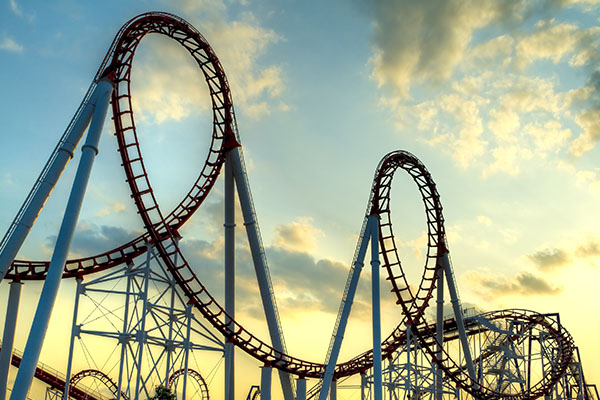
Let’s say that’s you. You’re thinking about it. Wouldn’t you rather regret what you did versus what you didn’t do? When you and I are 80 years old, sitting on a rocking chair on a porch, or you’re on your deathbed, I want to regret what I did. In other words, what I tried and maybe failed at versus what I never ever tried. You’re never going to be able to avoid regret. If you’re going to have one or the other regret what you did versus what you didn’t do, that’s getting over the fear associated with the thought of taking a physical, financial, relational, spiritual, or dietary risk.
I’d love that perspective when you break it down like that.
I’m like your reader. I’m afraid every day.
I can relate and I love how you say changing the DNA. I can personally relate to that and it hit me pretty hard when you said that, but I got to ask, through this journey and your journey with writing, real estate, and all the other various things, where did you even begin? How do you even begin who Frank McKinney is and get that out, if that makes sense?
It does. First of all, if I keep referencing my book, I make no money.
No, It’s okay. I want to hear about the book.
I want to tell your readers who’s like, “He is hawking his book.” I make $0 out of the sale of my book. Every book that I sell, this or my other six, goes to fund the works of our Caring House Project Foundation. One book provides 200 meals for the orphanage orphans in our orphanage. “There he goes with his book again.” I don’t make any money. To answer your question, back to Aspire, how did I craft who Frank McKinney is?
How did you brand Frank McKinney?
How did you put the pieces together to create the brand, to create the person into Frank McKinney? In that first section of Aspire, after it asked you the question, “What legacy do you aspire to leave behind?” When that question is asked, it’s almost like I’m asking you, “Would you like immortality?” Legacy is tied to immortality. Everybody wants immortality. We all want it. “I got to think about my legacy while I’m still alive? That’s a little bit morbid, Frank. That’s a tough question. I don’t know if I can even answer that now.”
Here’s the question you can answer, and this is the question that helped me craft the person, the brand that I am. Who do you aspire to emulate? Who is it from childhood all the way to now that you could sample pieces of their DNA? I don’t mean copy. There’s a big difference. If you saw them walking down the beach, you’d want to put your footprints in their footprints because, “I look up to them.” That was something that, as I started to put together the brand that is the person that is Frank McKinney, going back to early childhood, I sampled from real and fictional characters. I’ll give you two examples. When I was younger, Willy Wonka was an absolute hero to me.
I watched the first one that came out in the ‘70s and then the second one with Johnny Depp in the ‘90s or 2000s. As a child in the ‘70s, I related to it and watched it over and over again. Not as a business person, but as a kid. That guy had everything that I would love to, I’m going to use a big word now, but back then I wouldn’t emulate. I would love to emulate that. If you ever came to any of our Grand Unveilings, I previewed a movie and a movie theater that I was in and produced and stuff. You’ll see a little bit of Willy Wonka in all of it. I’ve been asked by Oprah, USA Today, you name it, I’ve been asked by the public, “What’s the best business book you ever read Frank?”
They’re waiting for this deep answer, Charlie and the Chocolate Factory. That’s the book from which Willy Wonka and the Chocolate Factory was made. If you could, as a business person, create a frenzy around your product like Willy Wonka did around his chocolate bars, based upon his approach of quality, exclusivity, and eccentricity, taking away from the way he lived, I do that with houses. It’s like there’s a little eccentricity, there’s a little lunacy to it. There’s a little bit of taking away with the ultra-wealthy because they want what they can’t have. That came and was derived from a little bit of sampling of Willy Wonka. That’s a fictional character. That’s not even a real person.
I identified five of them in my book that I started to emulate. The second one would be Robin Hood. As a child in the back woods of Indiana, I actually bought the costume, the green tights, and the little hat with the feather in it. I had my little bows and arrows and I’d go in the back woods with my friends. It wasn’t shooting the bows and arrows around. It was thinking, “Isn’t that awesome that that guy steals from the rich and gives to the poor?” Guess what? I sell houses for $3,000 a square foot to the rich. Some people say that is stealing from them. It’s not. Of course, I sell to them. They buy it on. They pay money for it.
I take that money and I build self-sustaining villages in Haiti. That was a direct connection to my wanting to emulate Robin Hood. The first section of Aspire takes you through what legacy you leave behind. To help you answer the question, “Who do you aspire to emulate?” is so much fun. The things I’ve had written back to me, “Frank, it’s cool that you tried to emulate fictional characters. Give me some real characters.” Those are two people who didn’t even exist that were absorbed into my person.
That’s a great question to ask people. I’ve never had it asked that way to me or anyone else, to be honest. I haven’t heard it that way. From the looks of it, you live an enriched life. You’ve successfully built successful businesses where you’re now giving back in more ways than most people can even fathom.
Life’s a beautiful mystery. I can tell you that. It’s mercurial for me. I’m very mercurial in existence. My therapist says I’m addicted to excitement. I will tell you, for those of you who are reading, there’s a chapter in the book that talks about don’t change. Why do I tell you not to change? It’s because psychiatrists and psychologists that are much smarter than you and I say that our core personalities are formed between the ages of 4 and 10. Most everybody reading this is older than 10. Who you are now is who you will be for the rest of your life. What I chose to do was I had that addiction to the excitement that was very self-destructive.
There were reasons I was put in juvenile detention. I didn’t change. I found a constructive outlet for a destructive tendency. My constructive outlet is that I build houses on spec, not knowing when I’m going to get paid, not knowing if I’m going to make millions or be eating out of a dumpster. That fills my need for excitement, but it’s constructive. I made a living out of doing something constructive that could have gone in the opposite direction.
I’m a Christian and there’s a passage, and if you’re not into the Bible or you’re not a Christian, what I’m about to share you share with you is a great life mantra. Muslim, Hindu, Jew, agnostic, atheist, Christian, to whom much is entrusted, much is required. To whom much is given, much is expected. That happens to be from the Gospel of Luke chapter 12:48. I live that.
When I read that, I’m like, “You were a loser in juvenile detention and headed for a bad life of crime.” I had this gift given to me, my professional highest calling, which is building these houses on speculation. It took me decades to discover my highest spiritual calling, which is what we do over in Haiti for the poor. You can’t say enlightenment is a goal because once you say it’s a goal, you’ll never attain it. It’s enriched. It’s like the Renaissance man that was back in the 1700s and 1800s, that fascinates me.
Being good at a number of things that all are tied together. My real estate is tied to my Haiti ventures and my running is tied to my need for excitement. When you’re going through life, which we all are, going back to the beginning of the conversation, please spend time contemplating the question of what legacy you want to leave. If that legacy you want to leave behind is a beautiful tomato garden, fantastic. At least you identified a legacy.
You get over the fear associated with taking a risk. You drop down to where you mentioned how this is the third section of my book. It is personal branding. Personal branding is a buzzword. Everybody uses it now. To me, personal branding is nothing more than amplifying your essence to the point where your customers, either current or future, become subliminally intoxicated with you first, then your product or service.

You’re not Apple, Coca-Cola, or Nike. You’re Julie Houston. I’m Frank McKinney. My houses do not have megaphones attached to them. They’re not their own carnival barkers. I have to be the one to brand them. I’m just the opening act. You can hate my clothes or my hair. I don’t come with the house. I get you to the front door and then I step back. The true headliner, the true show star of the show is that house.
It’s not very often I meet a lot of entrepreneurs and investors that have gone in the direction that you’ve gone in and it’s such an honor. If you could provide maybe 1 or 2 of your top suggestions for anybody in life starting out or whatever it may be, the best advice you’ve ever heard, what would that be? If you had 1 thing or 2 that you could tell someone, what would be critical?
Underground wealth secrets are what we’re looking for, underground stuff that you don’t typically hear. The most important thing as a person, not an entrepreneur or business person, is to exercise your risk tolerance. In other words, your risk threshold. Exercise that like a muscle. Eventually, it will become stronger and able to withstand greater pressure. If you don’t exercise your physical body, it withers. Atrophy. It’s the same thing with your risk tolerance, with your risk threshold.
The first spec house I ever did was a $50,000 crack house in a bad part of town. To me, that was the biggest risk I ever took because it took me out of my 9:00 to 5:00 and my cubicle. I was a tennis instructor. I was a tennis pro. As a tennis pro, I was making $100,000 a year when I was twenty years old. I brought a Ferrari when I was 21. I was on top of the world. I realized there was a limit to how much money I could make baking out there in the hot sun teaching somebody how to hit a forehand or a backhand.
I slowly exercised my wrist tolerance like a muscle. I took myself off the tennis court, not immediately. I needed to eat. Slowly over maybe a period of two years, I went full-time into the real estate business. To me, when I took my own $36,000 and bought that first crack house, that was the biggest risk I ever took. That was the best time. I lifted that 10-pound weight. Over the years, now, $50 million was the most expensive house we ever did and a bunch of them in between, that risk tolerance got stronger and able to extend more and more pressure. It doesn’t mean I’m not afraid. If you asked me for one and you were going to pull the plug on our interview, that would be it. Exercise your risk much like a muscle.
Thank you for that. That’s good feedback. Before we close, I want to go back to the book briefly. For our readers, if you’re interested in the book, you can go to TheAspireBook.com for more information on the book. Frank, do you mind going a little more in detail about Haiti and what the organization is about?
This is where people will tune out if I don’t implore them to find their highest spiritual calling. You’re reading Julie regularly. It’s about entrepreneurship. It’s about success. That’s your professional highest calling. We all have a professional highest calling as defined by me as the ability you have to put food on the table, money in the bank a little bit better than most. Not better than everybody, but better than most.
What’s your highest spiritual calling? In the mid to late ‘90s, I was on top of the real estate world. I sold the most expensive spec house in the history of Palm Beach County. Back then, it was $14 million. There was a picture of me on the front cover of the Miami Herald, hands raised in triumph over my head. If you look deep into my eyes, I was depressed. My smile was fake. I was a consumeristic, materialistic jerk. I had not found my highest spiritual calling.
I went to my mentor and I said, “Why do I feel like crap? I should be on top of the world. I sold a house. I’m on the cover of this magazine.” He said, “Frank, you know what you’re doing for a living. God gave you this gift to do this. What about your spiritual side? What are you doing with the gift you’ve been given besides putting more money in the bank and food on the table and clothes in the closet and food in the pantry?”
I said, “I don’t know what you’re talking about.” I started volunteering at a soup kitchen every Monday night before Monday Night Football, one hour a week, serving meals to the homeless on the streets of South Florida. I had this ability to relate to homeless people. Three of my seven books have been endorsed by Donald Trump.
As easy as I could go to Trump’s office in Palm Beach, sit there, and talk to him, I had a better time sitting and talking to the homeless people when I was feeding them meals. That then led to starting the Caring House Project Foundation, which initially provided shelter to elderly, homeless people on the streets of South Florida because they die. Older people don’t survive on the street very well. We were providing them with shelter for $1 a month in some of our little caring house project homes.
The businessman in me said, “I’m spending $15,000 to put shelter over somebody here. What about a country like Haiti which is the poorest in the Western hemisphere that has no social service system to catch the indigent?” In 2002, we did our first village over there, self-sustaining. I am not a fan of charities as I said at the beginning. Charity exacerbates poverty, meaning it makes it worse. We are about self-sufficiency.
The word charity exacerbates poverty, and that only makes it worse. Click To TweetA typical village in Haiti has 50 houses, a community center, a school, a church, a clinic, renewable food, clean drinking water, and some form of free enterprise so those villages can be self-sufficient. They know when we’re done, we’re not coming back to help you. We’ve set you up. Do not call us because we’re off to the next village. We are 30 for 30. Never have our villages failed because of that self-sustaining element.
I love writing. It is my hobby. If you go to TheAspireBook.com, there’s a sample chapter you can read. There’s a sample Audible chapter. I narrated the whole book on Audible. You can listen to that. You can read reviews of the book and then if you choose to get either from us or from Amazon, know that every dollar goes to providing these meals in our orphanages.
You can get the book at TheAspireBook.com. It is supporting a very good cause. Frank, I want to thank you so much for taking the time and being on our show. It’s been such an honor having you. Do you have any final words you’d like to say before we close?
I would tell people while you’re at TheAspireBook.com, which is housed on my website, Frank-McKinney.com, take a look. We released a couple of short movies about my comeback to real estate, how to colonize the moon, and metaphorically finding real estate opportunities where that are un undiscovered, undervalued, and underappreciated. My website has been called Disney on a desktop by PC Magazine because there’s so much to do there. That’s what I would suggest you do and pick up a copy of the book. You don’t have to get it from us. You can get it from Amazon as well.
Don’t forget to get your copy of the book. Frank, again, thank you so much. It was so much fun having you on.

